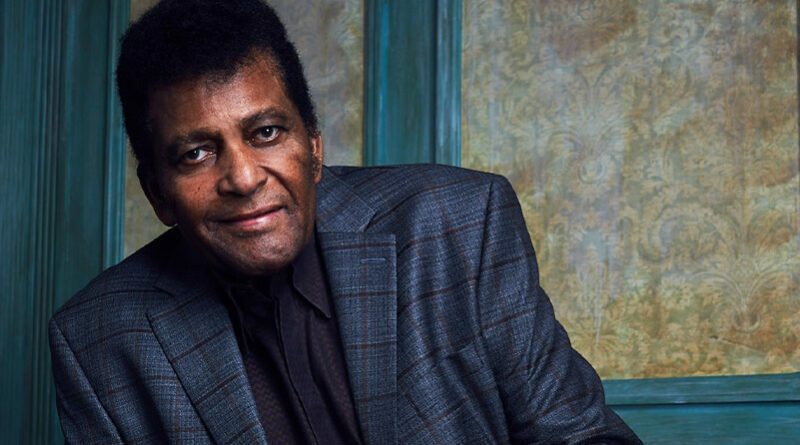Preston Hollow’s Charley Pride Dead at 86
Country Music Television has reported that Preston Hollow’s own music legend, Charley Pride, died of COVID-19 Saturday. He was 86.
“It is with great sadness that we confirm that Charley Pride passed away this morning, Saturday, December 12, 2020, in Dallas, Texas of complications from Covid-19 at age 86,” his family wrote on his Facebook page. “He was admitted to the hospital in late November with Covid-19 type symptoms and despite the incredible efforts, skill and care of his medical team over the past several weeks, he was unable to overcome the virus.
“Charley felt blessed to have such wonderful fans all over the world. And he would want his fans to take this virus very seriously.”
Pride was a trailblazer in country music, breaking ground as the genre’s first Black superstar.
“Pride is considered country music’s first African American superstar,” CMT said in a staff reported story. “He scored 29 No. 1 hits between 1969 and 1983 and charted 67 singles in his groundbreaking career. as well as the CMA Entertainer of the Year award in 1971.”
“Charley Pride was a fine gentleman with a great voice,” said fellow Preston Hollow resident and former President George W. Bush. “Laura and I love his music and the spirit behind it. Plus, he knew baseball: Charley was a big Texas Rangers fan and a player himself.
“Laura and I send our condolences to Charley and Rozene’s sons and daughter, their extended family, and his countless fans. May God bless Charley Pride.”
Born in Sledge, Mississippi, in 1934 to sharecroppers, Pride’s first career was professional baseball player – despite loving music and teaching himself to play guitar when he was 14.
Pride had stints with the Memphis Red Sox, the two farm teams for the New York Yankees, and the Louisville Clippers, as well as several other minor league teams, before being drafted into the U.S. Army in 1956. When he was discharged in 1958, he rejoined the Memphis Red Sox, then played for a few more minor league teams before moving to Helena, Montana, where he played for a local semi-pro team and worked for a lead smelter.
Eventually, though, music called, and he embarked on a career. He played clubs in Montana before signing with RCA Victor in 1965 and releasing his first single in 1966. That first single didn’t chart, nor did his second, but his third – “Just Between You and Me” – did, and by the next year he was performing at the Grand Ole Opry.
“Through a mix of courage, determination and extraordinary talent, Pride made Country Music history by becoming the genre’s first black superstar,” the CMA said at the time the award was announced.
“Charley Pride is the epitome of a trailblazer,” said Sarah Trahern, CMA Chief Executive Officer. “Few other artists have grown Country Music’s rich heritage and led to the advancement of Country Music around the world like Charley. His distinctive voice has created a timeless legacy that continues to echo through the Country community today. We could not be more excited to honor Charley with one of CMA’s highest accolades.”
Among his hits are “Is Anybody Going to San Antone,” “I’m Just Me,” “Afraid of Losing You Again,” “It’s Gonna Take a Little Bit Longer,” “Hope You’re Feelin’ Me (Like I’m Feelin’ You),” “My Eyes Can Only See as Far as You” and “She’s Just an Old Love Turned Memory.”
Pride moved his family to Dallas from Montana, and eventually, as his fame grew, picked up properties around town – a few duplexes and an office complex that houses his recording studio.
He called an abode on Northaven Road in Russwood Acres home.
In 1986, he spoke of the reasons for choosing Dallas with D Magazine‘s John Morthland.
‘In 1969, Pride and his wife Rozene (whom he met and married in Memphis nearly 25 years ago, and who today oversees his businesses) moved to Dallas,” Morthland wrote. “Texas had always been a good state for Pride (‘mighta been the best’), and Dallas “fitted everything we needed. You could get in and out from anywhere in the world even at that time. And the schools were good for the kids. Our kids were all born in the Rocky Mountains, so we checked to see what city back towards home in the South would have the least exposure to prejudice.’”
In 2008, he was profiled by D Magazine’s Zac Crain.
“That ring tone—Pride singing ‘Kiss an Angel Good Mornin’—is nothing, really. It’s also everything. It’s both a symbol of Pride and a symbol of pride, proof that a black man, son of a Mississippi sharecropper, was able to rise to the very top of a white world. More than that, it’s proof that Pride still has to remind everyone of that fact,” Crain wrote.
The family asked that, instead of flowers, donations go to The Pride Scholarship at Jesuit Preparatory, the St. Philips School and Community Center, or a food bank or charity of the donor’s choice.









